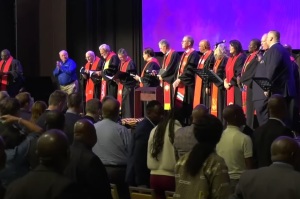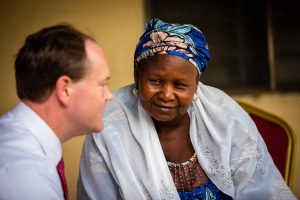Personal Faith, Not Positive Thinking, Is Key for TBI Victims, Suggests Study
Mere “positive thinking” is not enough. Traumatic brain injury (TBI) victims who believe they are close to a “higher power” report better emotional and physical rehabilitation success, according to a Wayne State University research.
Many TBI victims are known to use religion and spirituality to cope but it remained to be scientifically investigated what elements of religion and spirituality actually affected rehabilitation outcome.
Eighty-eight adult participants with 1- to 20-year-old brain injuries and their “significant others” (SOs) participated in the study carried out by researchers Dr. Brigid Waldron-Perrine and Dr. Lisa J. Rapport of Wayne State University. While the survivors were asked to “subjectively” report their religious and spiritual beliefs and their sense of current physical and mental well-being, their SOs were to report “objectively” the rehabilitation outcomes. A neuropsychological survey of the cognitive abilities of the participants was also carried out.
It was found that a sense of meaning and purpose in life (existential well-being) was not a “unique predictor” for any outcome. However, “a sense of connection to a higher power” (religious well-being) was, in fact, a unique predictor for life satisfaction, distress and functional ability. In other words, it does not help to have a positive outlook alone. Personal faith in God is apparently the key.
The majority of the participants in the study were male (76 percent), African American (75 percent) and Christian (76 percent).
“Individuals cope with the tools available to them, and perhaps especially for those with limited means and few alternatives, religion can take on great power as a psychosocial resource,” Waldron-Perrine said in a statement.
The research also noted that participation in public religious activities did not have any significant effect on rehabilitation outcomes, something that reaffirms the fact that individual faith is more important than marking attendance at the church.
A TBI may occur by way of an injury to the head through a fall, motor accident, collisions and assault. It can bring about short- or long-term changes in the way the brain works and affects thinking, sensation, language, or emotions.
Centers for Disease Control and Prevention reports that annually an estimated 1.7 million people sustain a TBI and of them 275,000 have to be hospitalized.
Males are at a higher risk of TBI (59 percent) and nearly 22 percent of all TBI-related hospitalizations involve adults aged 75 years and older, according to CDC.
Though previous researches have found links between religious social support and its positive impact on a patient’s rehabilitation, this particular research firmly indicates a connection between personal religious belief and positive health outcomes
Researches state it thus: “Notably, a self-reported individual connection to a higher power was an extremely robust predictor of both subjective and objective outcome.”
The research article was published in Rehabilitation Psychology.





























